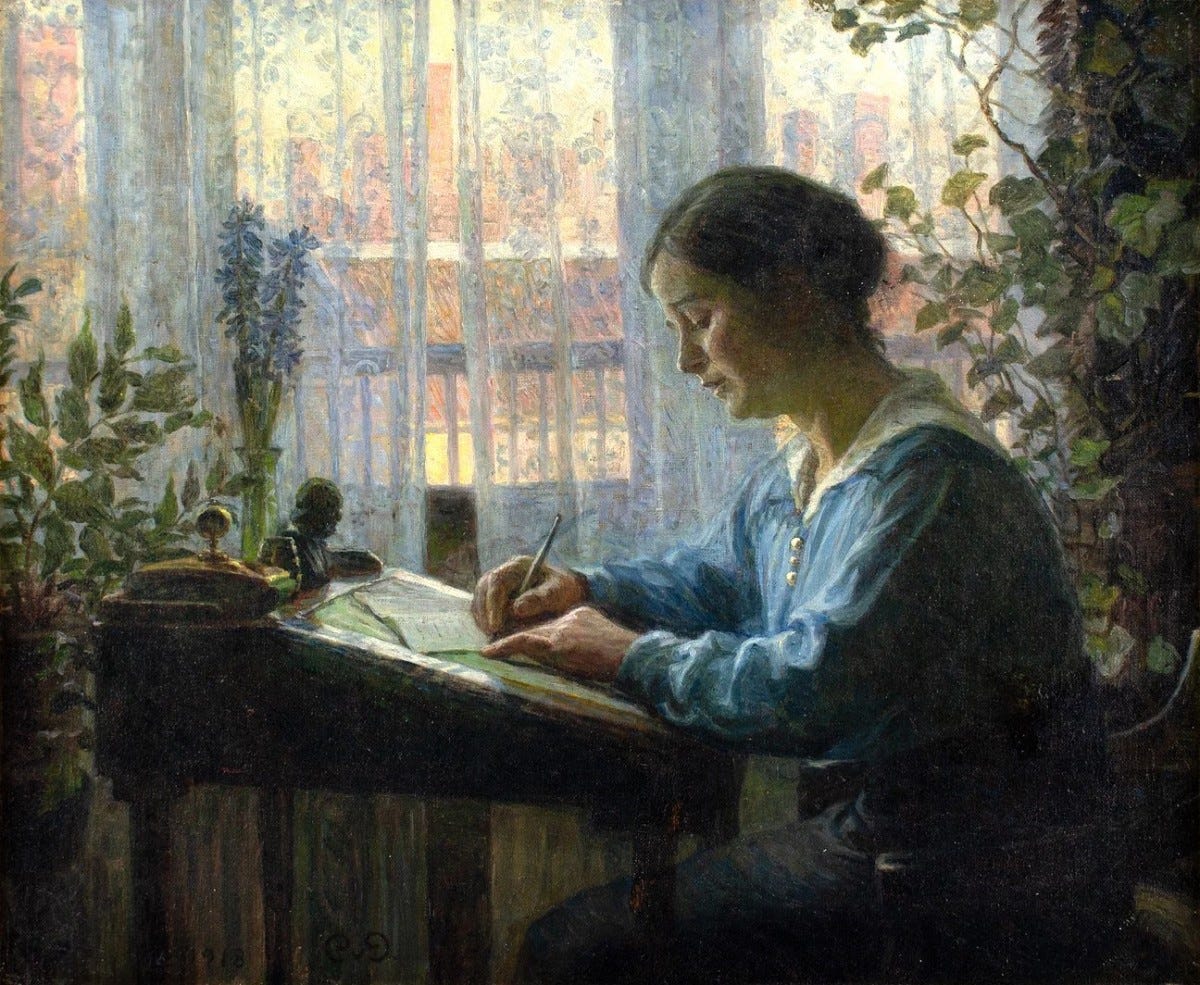Since last week’s newsletter, I’ve been pondering over conducive circumstances. Like how Goldilocks needed things just right and The Princes and The Pea couldn’t sleep because of one tiny little pea. But when it comes to writing, sometimes you just need to put pen to paper, get your head down and get on with it. It’s certainly nice to romanticise your space, with vases of flowers or by lighting candles. It’s also great in theory to allot blocks of time and believe you’ll be able to write freely, just like flicking a switch off and on. None of it is a requirement though.
This week I read an interview Maggie Nelson did with Tulva magazine back in 2021 and was struck by a section in which Nelson spoke about how parenting a young child meant her writing happened in fragments, working around the ‘interruptions’ of her baby.
“I do think that this question of interruption is really fascinating, because it taps into one of these ideas we have about unfettered genius, and what it needs, and what it looks like—you know, these patriarchal fantasies in which a man writes for hours in solitude, unencumbered by any other obligations.”
It got me thinking about how everyone else gets it done - where done is better than perfect.
When thinking about where or how writers write, the first one that comes to mind is Virginia Woolf thanks to her essay, A Room of One’s Own. “A woman must have money and a room of her own if she is to write”. The room is freedom and financial security to pursue passion and creativity as a woman in the 1920s. It’s a bit of a stretch for many of us to have a dedicated study or room for writing. Failing that, Woolf’s essay also stresses the importance of food. “A good dinner is of great importance to good talk. One cannot think well, love well, sleep well, if one has not dined well.” So if you don’t have a separate room to write in, at the very least make sure you’re well fed before you start.
Patricia Highsmith believed that writing should be effortless. That writing should wrap itself around the shape of your life. In her diaries, she revealed that she often wrote from her bed.
“I write on my bed (bed made up, myself fully but not decently clothed), having once surrounded myself with ashtray, cigarettes, matches, a hot or warm cup of coffee, a stale part of a doughnut and saucer with sugar to dip it in after dunking. My position is as near the fetal as possible, still permitting writing. A womb of my own.”
I don’t typically write in bed but I often write while on the sofa, cosy and wrapped in blankets. Seeking comfort from plush furnishings.
Edith Wharton is another writer who also liked to work from her bed. It was her preferred spot to write from, as she dedicated the morning to undisturbed work until a steaming cup of hot chocolate was delivered to her bedside at around 11am. She would have her dog on one side of her, and an ink bottle on the other.
Highsmith and Wharton are certainly not alone when it comes to masterminding from bed. Many other writers and artists alike, particularly if their health had begun to prohibit them from working how they normally would, chose to work in bed.
Others prefer to get out of the house. While spending time in Paris, Ernest Hemmingway frequented many cafés with notebooks and pencils in tow. It is believed that he wrote most of The Sun Also Rises at the Closerie des Lilas restaurant in the 6th arrondissement. His memoir of his time in Paris, A Moveable Feast, also testifies to the time he spent immersing himself in Parisian café culture, synonymous with writers, intellectuals, and politicians who would visit hoping to engage in impassioned conversations and philosophical discussions. Simone de Beauvoir was a fan of cafés in Paris too. She spent time writing in both the renowned Café de Flore and Les Deux Magots.
You don’t need the beautiful delights of Parisian café to become a best-selling author. Similarly to Virginia Woolf, Stephen King wrote in a room of his own. Sort of. It just happened to be the laundry room in the trailer where he lived. He would ‘pound away on his wife’s typewriter, balancing a child's desk on his thighs’. Done not perfect. If the calling to write strikes a cord in you, make sure you find a way by any means necessary.
Lastly, and perhaps the most impractically, Agatha Christie told the New York Times in 1966 that the plots of her books would come to her while bathing in the tub. Now this one I definitely haven’t tried before. But when it comes to your creative process, each to their own, right?




